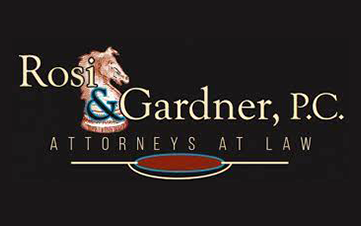In Hogwash! we’ve been writing about short-term rentals at least once a year since July 2016 and this growing issue in Northern Michigan continues to make local headlines, most recently when Elk Rapids put a 180-day moratorium on new short-term rental permit applications. Here is a brief roundup of some – not all – of the short-term rental issues and actions taken by local governments and the courts as well as a brief update on what’s happening at the state level.
A Growing Issue in Northwest Michigan
Garfield Township: A decision from the Michigan Court of Appeals, in 2018, ruled against Garfield Township homeowners who were upset by a 2017 ordinance that prohibited short-term rentals. The homeowners, previous short-term rental property owners, sought to be allowed to continue renting under the doctrine of “prior non-conforming use”.
East Bay Township: A short-term rental ordinance was passed in July 2019, repealing and replacing a short-term rental ordinance enacted in June 2018, after that ordinance was challenged by homeowners.
Acme Township: Acme enacted a short-term rental ordinance in 2019. Today, Acme provides Good Visitor Guidelines (online) for short-term renters. It asks short-term renters to respect their residential neighbors’ property rights, reinforces that agricultural activity is protected under the Michigan Right to Farm Act and explains that neighbor complaints may be reported to the property’s agent, the sheriff’s department, Acme Township and/or the township designee.
Leelanau County: Suttons Bay Township has enacted a short-term rental ordinance; Bingham Township has drafted one and at this writing Leelanau Township is considering an ordinance based on the Suttons Bay ordinance and the Bingham draft. These municipalities either have or are considering capping the number of rentals allowed in the township. Other issues township planners have tackled include:
- A limit on the number of occupants of a rental at any one time based on the number of bedrooms in the home.
- An annual permitting process and a fee to cover costs for administering this program by the township.
- Requiring a local 24-hour contact person to handle any neighbor complaints and notification of neighbors of that person’s contact information.
- Regulation of parking.
- Setting a maximum number of nights per year that a home can be rented.
Antrim County: Elk Rapids, which has allowed short-term rentals since 2008, recently put the rental program on hold for 180 days to work on a new ordinance regulating short-term rental properties. In Milton Township, a recently passed ordinance regarding short term rentals restricts them to a total of six weeks annually with at least one week between renters. It also limits the number of renters to 10 and requires a septic inspection.
Neighborhood Concerns: One of the concerns raised by neighbors and township officials about short-term rentals is the effect such activity has on septic systems. Some short-term rental owners, in order to charge a higher price, have added sleeping quarters in bonus rooms and on sofa beds. Since septic systems are sized to the number of bedrooms in the home, neighbors have expressed concern that the septic system may not be able to meet the demand imposed on them. Other neighbor concerns include:
- Noise issues
- Disorderly conduct
- The effect short-term rentals have on long-term rental availability.
At the State Level
Currently there are two legislative proposals regarding short-term rentals. One would stop municipalities from outright zoning bans of short-term rentals and classify them as residential, not commercial, property. That bill was referred to the Committee on Local Government and Municipal Finance in January. The other package of bills also prevents local governments from banning short-term rentals, creates a state-wide short-term rental registry and requires that short-term rental owners pay the state excise taxes that hotels pay. It also exempts homes and apartments rented for 14 days or less from its regulations. It was referred to the Committee on Commerce and Tourism in May 2019.
In trying to resolve the short-term rental issue, three groups have been enlisted by the Michigan Legislature. These groups represent the hospitality industry, real estate agents and local government advocates, and their views vary widely as discussed below:
- Real estate agents who favor property rights and see restrictions as affecting the second home market,
- Hospitality industry leaders who see short-term rentals as direct competition with an unfair advantage in not paying fees and submitting to inspections that hotels and motels are subject to,
- Municipal government leaders who want to have continued control over zoning and uses affecting neighborhood stability.
It’s Not Just in Northern Michigan
Google short-term rentals in Michigan and you’ll get a list of municipalities that have enacted short-term rental ordinances including coastal communities like New Buffalo, Spring Lake and South Haven, and major cities like Detroit and Grand Rapids.
Look a little further and you’ll see that the short-term rental business, made simpler online, is being regulated in major cities like New York, Los Angeles and Miami as well.
At Hogwash! we’ll continue to keep an eye on these issues.
Rosi & Gardner, P.C.
Latest posts by Rosi & Gardner, P.C. (see all)
- Is Collaborative Divorce the Right Choice for You? Exploring a Path to Amicable Separation - November 29, 2023
- Choosing Harmony: Why Opt for Collaborative Divorce Over Traditional Divorce - August 30, 2023
- Benefits of Mediated Divorce - May 24, 2023
